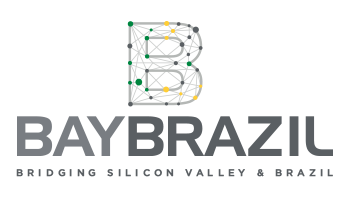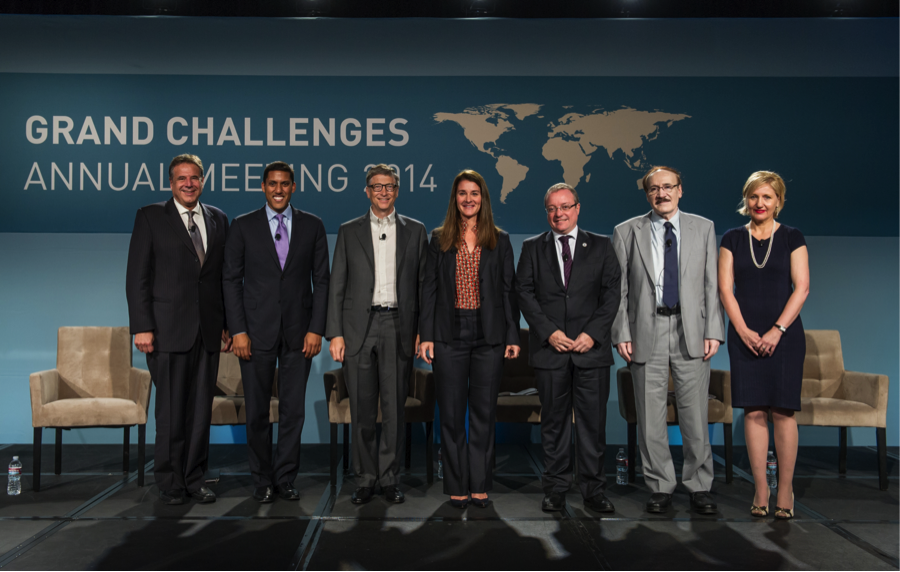This last Tuesday I had the honor of representing BayBrazil in an event in Seattle commemorating the tenth anniversary of Grand Challenges, a family of initiatives fostering innovation to solve key global health and development problems. Grand Challenges is sponsored by the Bill and Melinda Gates Foundation.
This initiative has awarded 1628 Grants in 80 Countries and Brazil is emerging as a strong participant.
As I entered the packed room (around 700 people) I could feel the energy and excitement. For a moment I had the impression that Bill Gates at the stage was observing each one in the crowd just like the best teachers do.
This anniversary event, attended by scientists and researchers from around the world, celebrates a decade of progress since the launch of the initial Grand Challenges in Global Health initiative. This original US$450 million research initiative was created to catalyze scientific and technological innovation to achieve major breakthroughs in global health.
In this event Brazil had 12 researchers from 5 states. José Guilherme Cecatti and Rodolfo de Carvalho Pacagnella will receive R$2M for each of their projects. All other 10 researchers will receive R$500K.
Three new initiatives were announced:
All Children Thriving – focusing on developing new tools and holistic approaches to help mothers and children thrive in the developing world by ensuring a healthy birth for both mother and child and setting children on a path to healthy physical growth and cognitive development.
Putting Women and Girls at the Center of Development – focusing on a rigorous understanding of women’s and girls’ needs and preferences and gender inequalities and supporting new approaches to promote women’s and girls’ empowerment that will enhance the ability to achieve multiple health and development goals.
Creating New Interventions for Global Health – focusing on accelerating the translation of original and innovative concepts for vaccines, drugs and diagnostics into safe, effective, affordable and widely used interventions for diseases in the developing world.
“We know how critical women and girls are to the health and economic prosperity of their families and communities, but we don’t have all the answers yet,” said Melinda Gates, co-chair of the Bill & Melinda Gates Foundation. “Over the last decade, Grand Challenges has demonstrated that when we partner together and think in bold ways about possible solutions, we get that much closer to every person realizing their full potential. I am excited by the incredible opportunities that lie ahead with these new challenges.”
“Melinda and I have always believed that advances in science can help reduce inequity in a big way. But you have to be willing to take some risks and see some projects fail,” said Bill Gates. “That’s the idea behind Grand Challenges—to focus bright scientists on the problems of the poorest, take some risks, and deliver results. We’re delighted with what’s happened in the first decade, but we’re not satisfied, and we hope to see even more progress in the coming years.”
Perhaps just as important as the new challenges is the growing network of funders that are adopting the Grand Challenges approach to accelerate research. Today there is a broad family of Grand Challenges grant programs guided by a shared approach and set of principles.
Several countries are also issuing country-or region-specific challenges under the All Children Thriving umbrella. Both Brazil (through its Ministry of Health and National Council for Scientific and Technological Development) and India (through its Biotechnology Industry Research Assistance Council) are leveraging their deep pools of scientific talent by issuing challenges open to researchers from their respective countries. South Africa is also issuing its first Grand Challenge through its Medical Research Council, open to researchers throughout Africa. These challenges will engage local and regional investigators with firsthand experience of the global health and development problems Grand Challenges seeks to solve.
I was able to spend some time with Brazilian researchers and chat about their work. José Guilherme Cecatti explained to me that his research is to identify markers in blood samples that indicate high risk of premature birth. The success of his research will allow woman to adopt proper procedures related to premature labor and birth.
Rodolfo de Carvalho Pacagnella is researching if measurements of the uterus using ultrassound can indicate high risk of premature labor and birth.
Jose Simon Camello Jr is working to improve the maternal milk for premature babies. This procedure may reduce risk of injuries in premature babies.
I was also impressed by a conversation with a Brazilian serial entrepreneur, Juliano Froehner, who is working with a startup that helps doctors give instructions over sms to pregnant woman and mothers in the first 1000 days ( www.medico.com.vc )
One other aspect that gave me great joy is the information from Brazilian researchers that we have research networks that are strong and in a continuous improvement process in Brazil. We should expect more innovation in the next few years.









